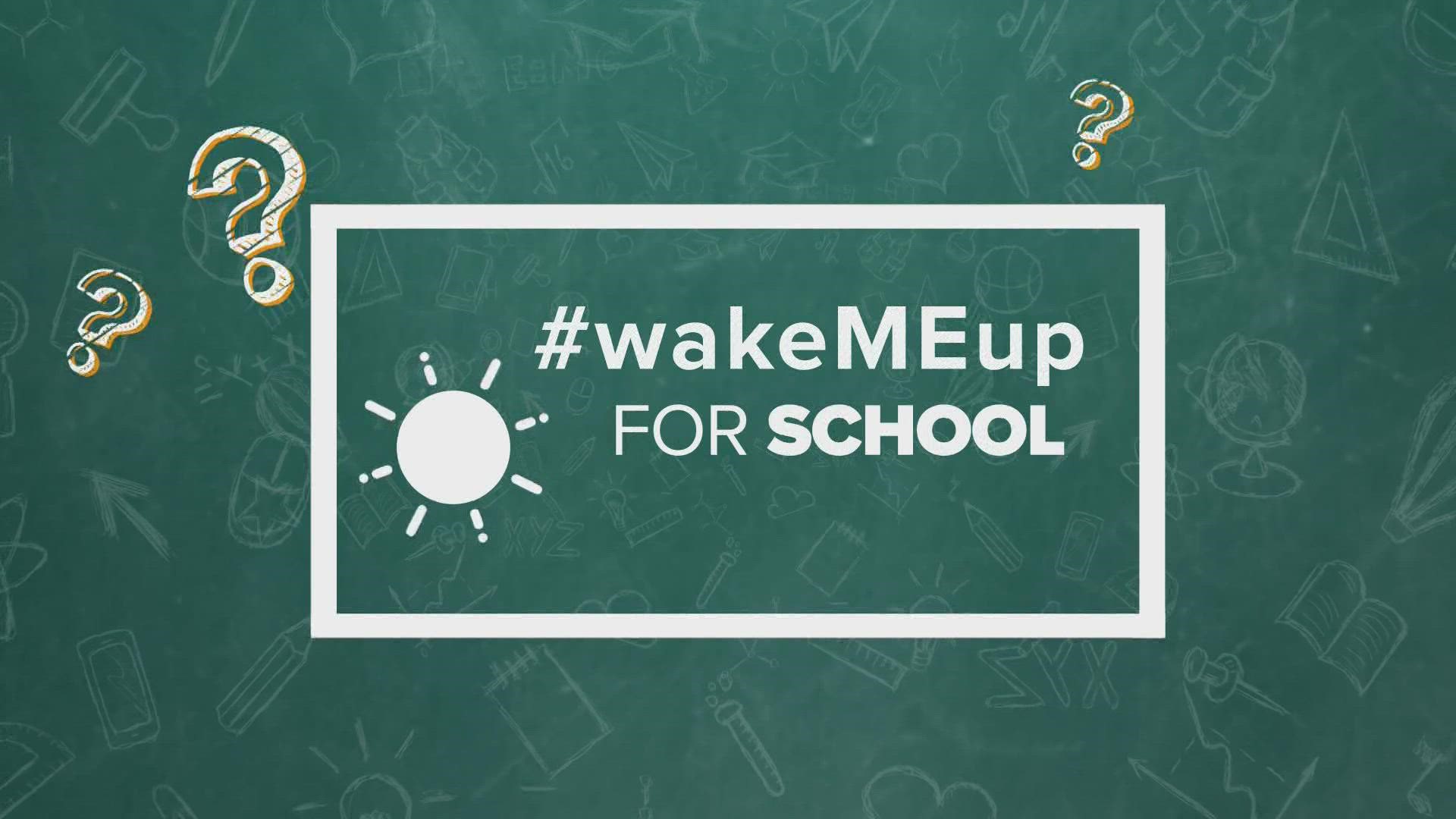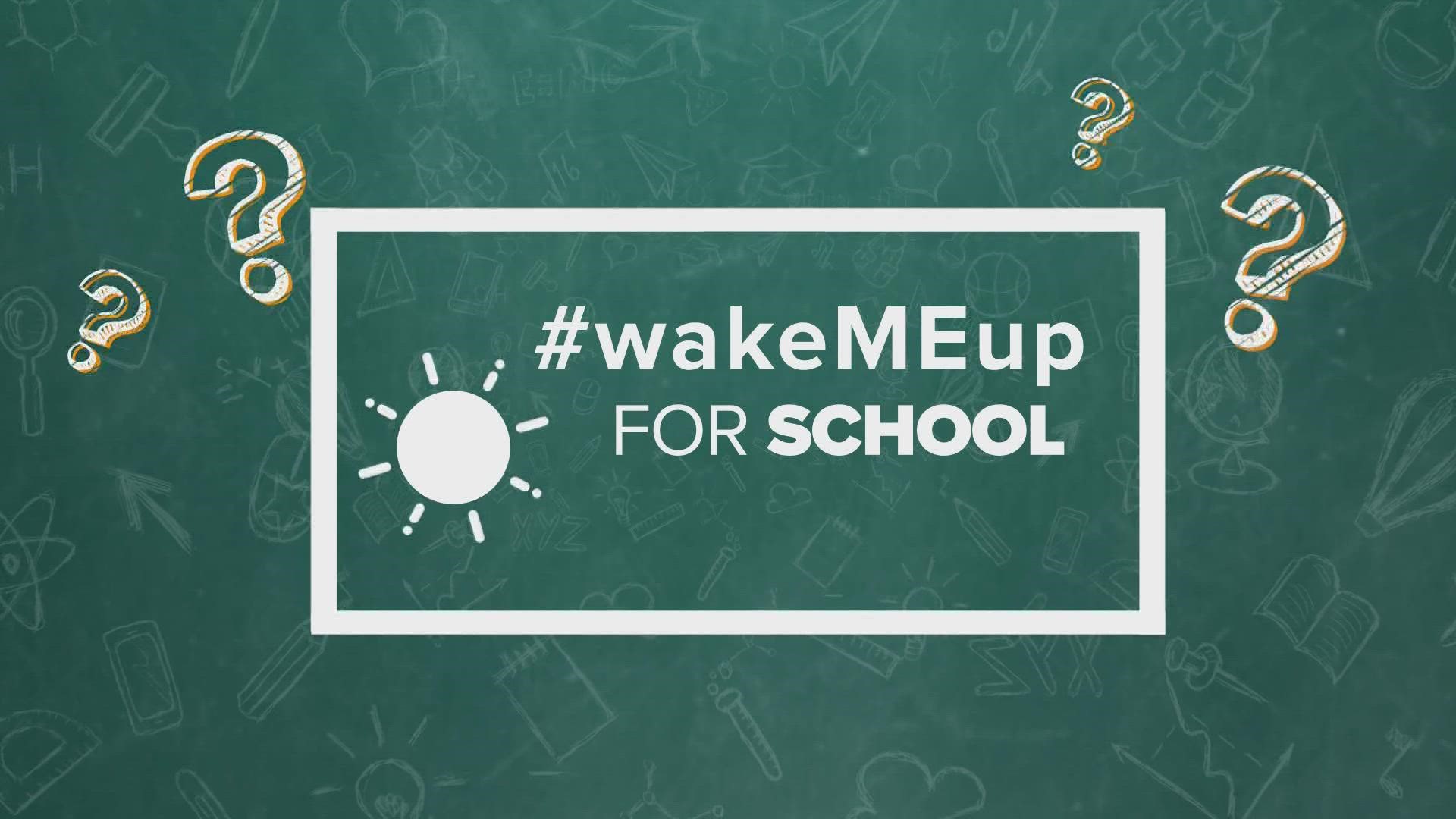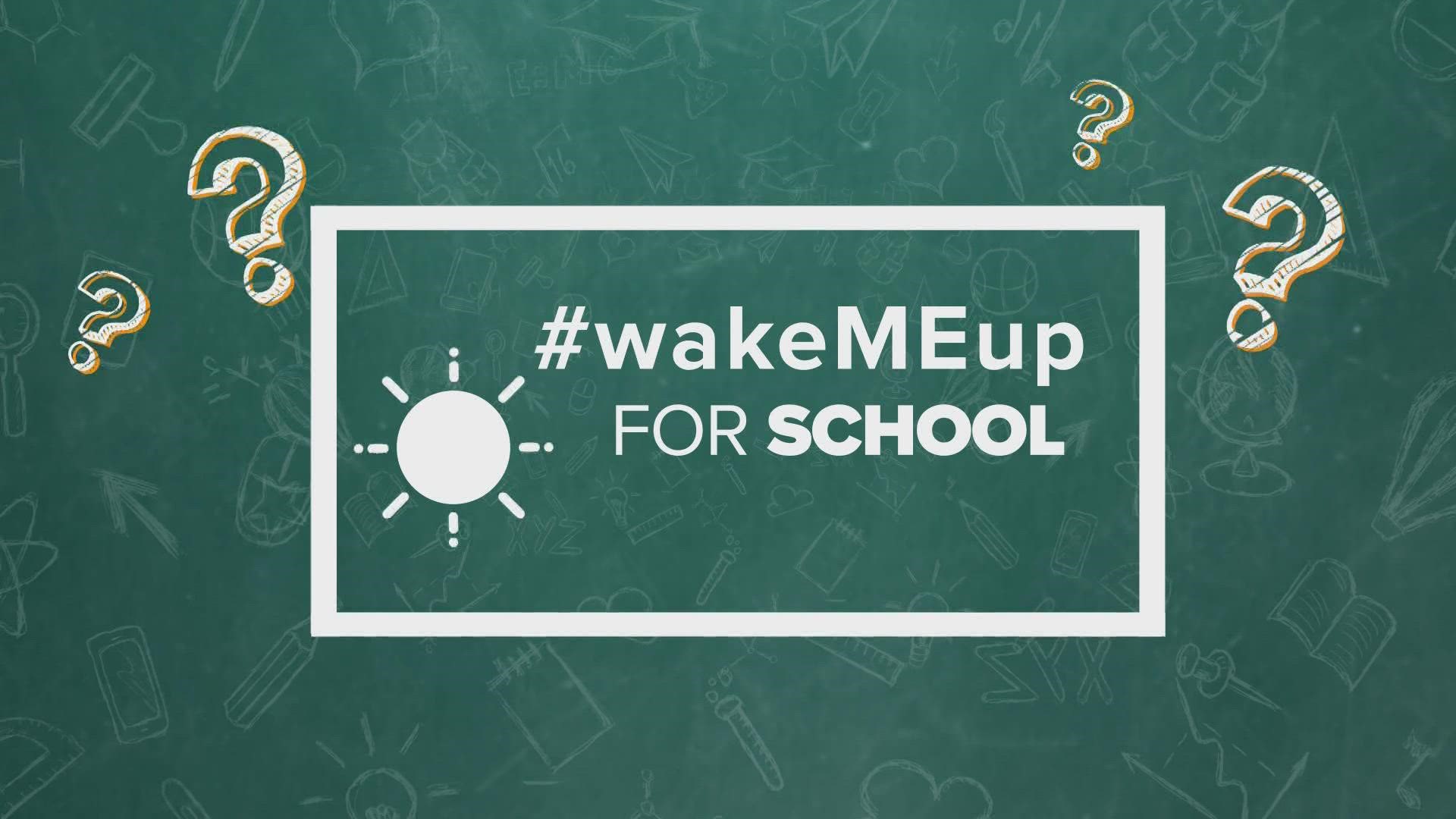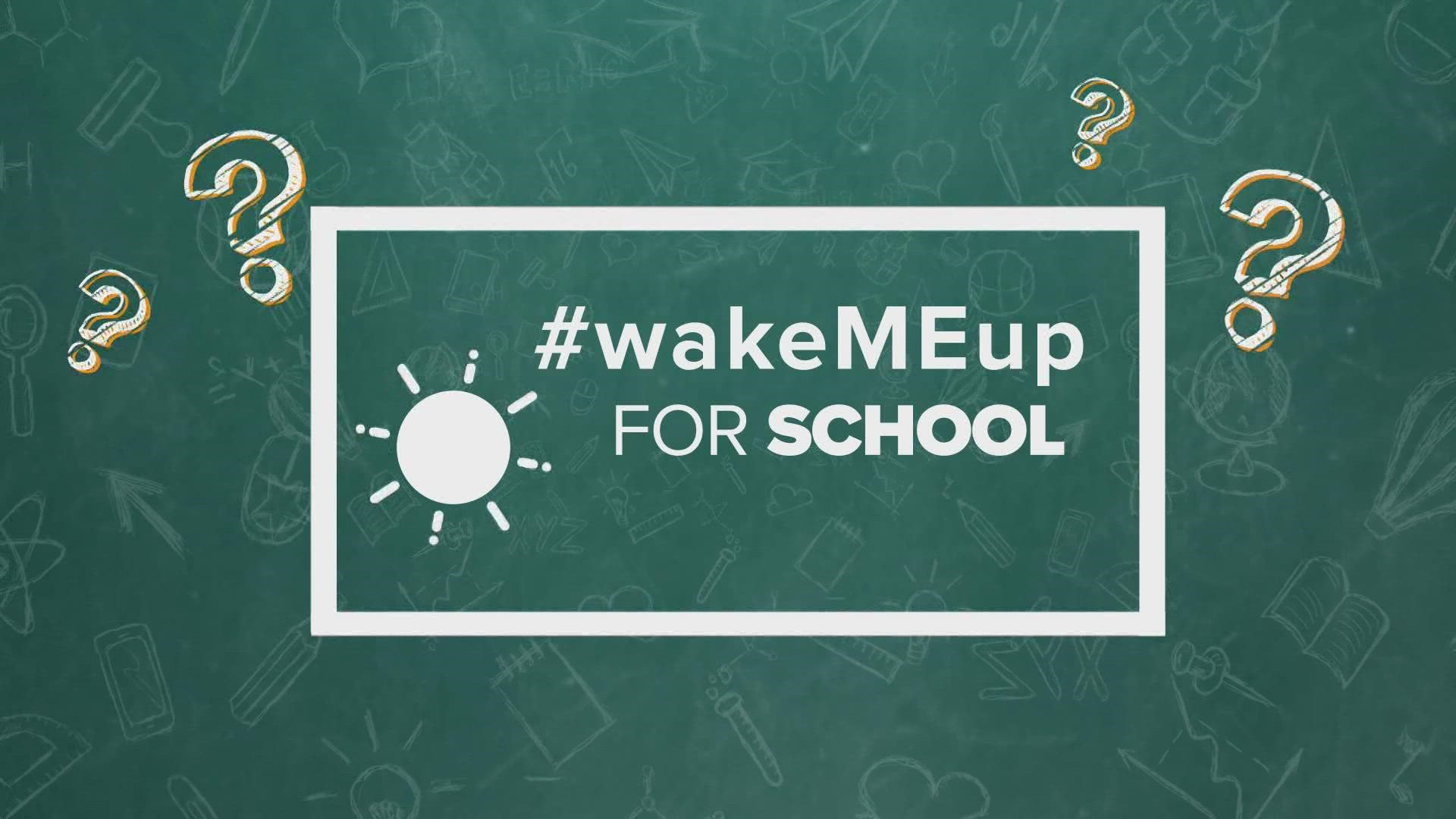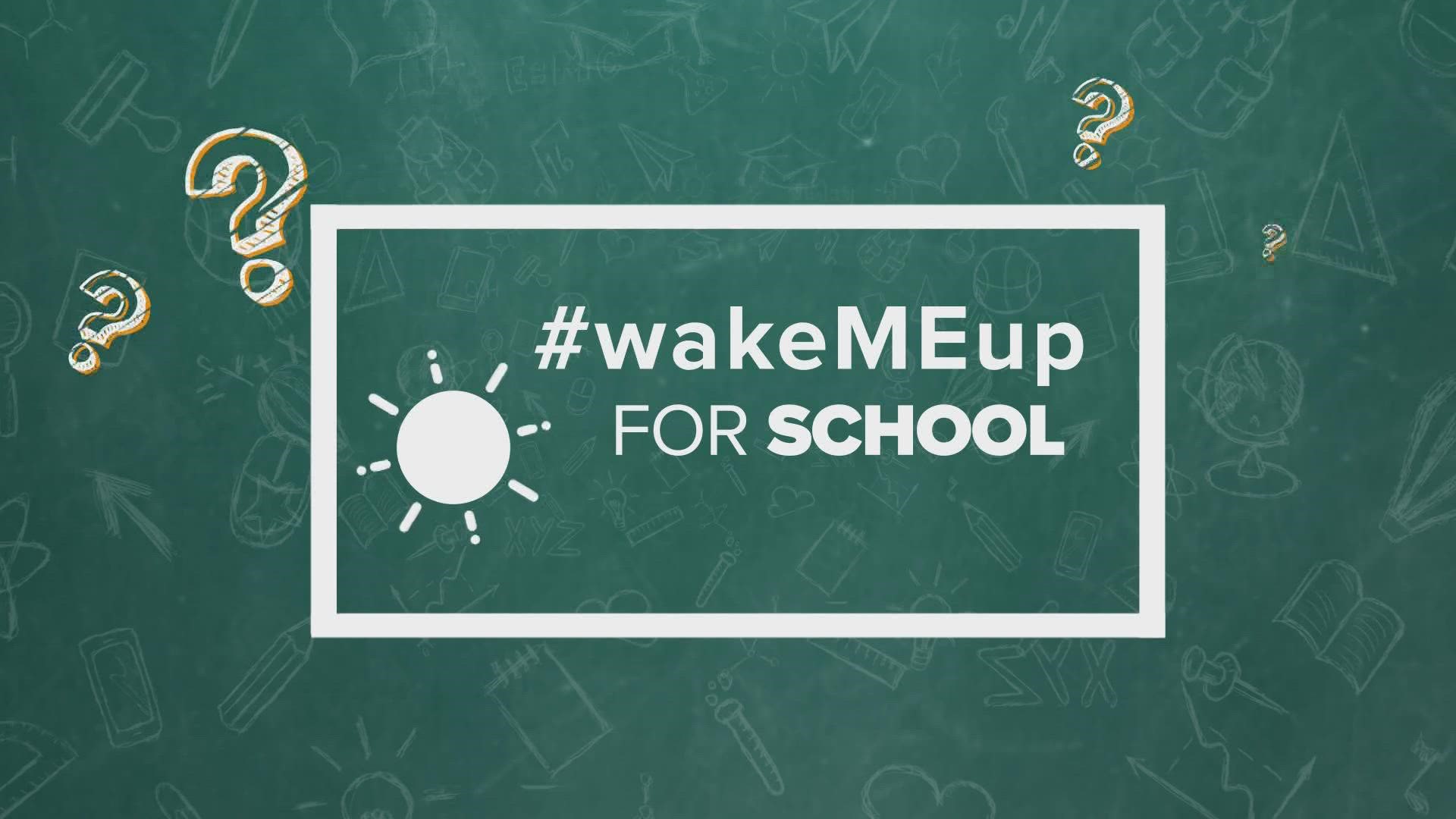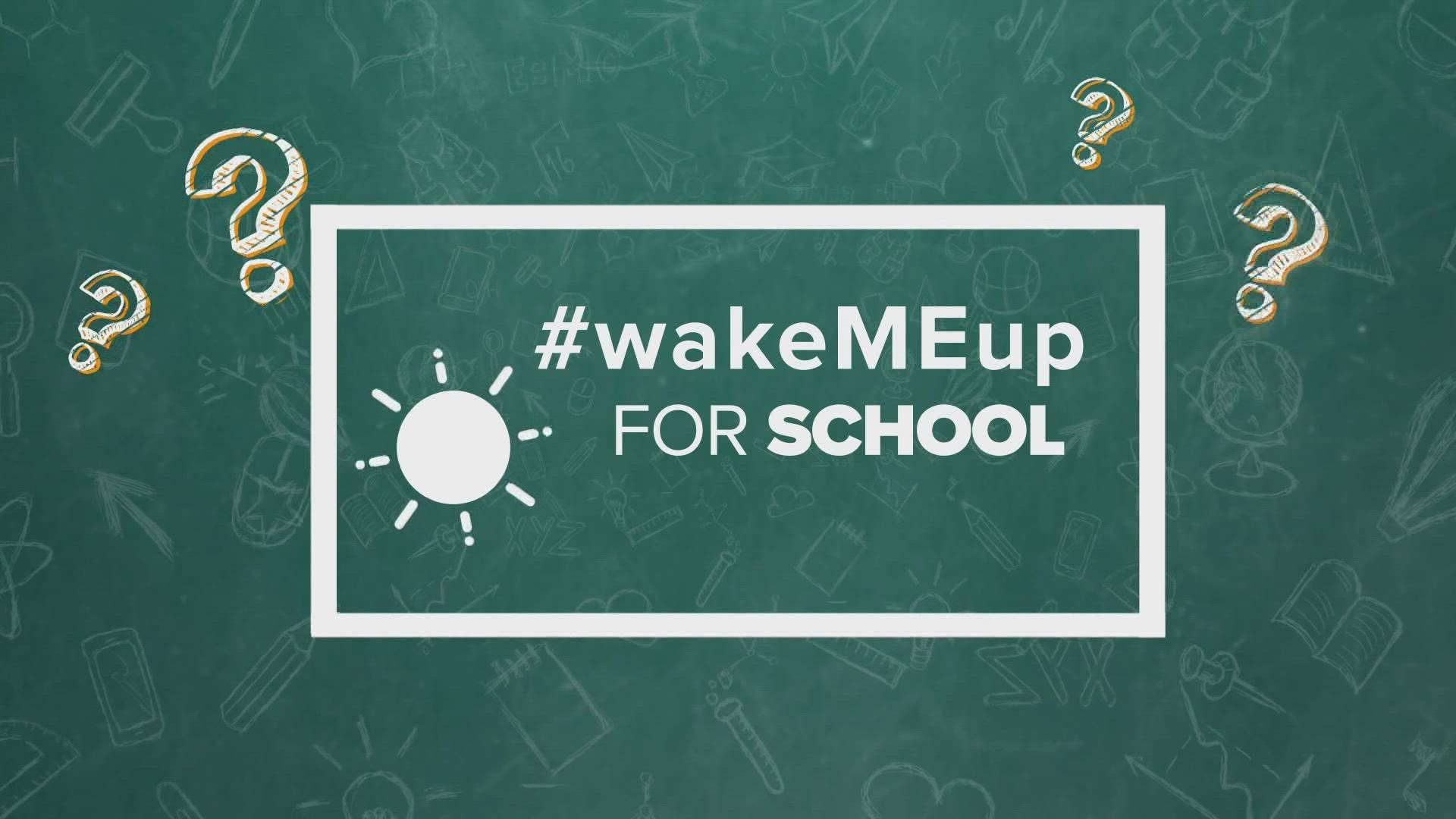RAYMOND, Maine — As most Maine students begin to return to classrooms this week, physical health is a focal point of conversation among school leaders, parents, and other community members. The pandemic has also taken a toll on people's mental health, though, which is one reason why going back to school may look different to some students this year.
Ruth Crowell is the president of the Maine Association of School Psychologists. She's also a school psychologist at Raymond Elementary School and Jordan-Small Middle School where she works with students from a variety of backgrounds. She says there's a certain amount of anxiety among students, as they take one step closer to "normal" schooling. It's why she sat down with NEWS CENTER Maine's Chloe Teboe the morning of Wednesday, Sept. 1, to answer some questions.
How has the pandemic affected children? What concerns/issues are you hearing about with students going back to school?
Crowell: "Children, like adults, get affected in different ways, depending on the child. I mean, overall, certainly they're a little bit more anxious than they were a year ago. None of us like to get bumped out of our routines, and children are very much creatures of habit and like those routines. Their concerns about coming back to school are primarily social. Parents are worrying more about the academics; kids are concerned about, 'Am I going to have friends in my class? Are the kids going to like me? What is it going to be like to be back with a group? Am I going to find a way to fit myself in?' It's really those social pieces that kids are the most concerned about."
Teboe: "You, obviously, are a psychologist here at Raymond Elementary School. What steps are you all taking, just to make sure that kids can find that balance and get back into that routine?"
Crowell: "When we had our back to school introduction from the superintendent, the focus was on helping kids feel comfortable. Don't worry about the academics those first few weeks. Do a lot of community building within the school. Help students connect with each other, connect with the teachers. Give them lots of support in learning the new routines, particularly for the students who haven’t been in school for over a year. Really focus on that piece, and we'll worry about the academics a few weeks down the line, once they settle in. There were kids outside blowing bubbles yesterday and playing Bingo, where they had to remember different characteristics of students who were there in their class -- really getting to know each other. That way, they're spending some outdoor time where they weren't having to mask and just kind of having some fun and getting comfortable back in school."
How can students manage the pressure of getting back on track after missing a year of normal schooling – whether it be getting into college, deciding what to do after graduation, or dealing with anxiety about the future?
Crowell: "It's natural for students to feel anxious about coming back to school, as well as to feel excited -- but when there's been a gap of a year, or a year and a half, since they've been in the school, or been in school full-time with full classes, it's also natural to feel a little more anxious and for that to sort of amp up all of their emotions. I think it's very important to give kids a chance to express those emotions; to talk about them; to feel okay; to understand that other students are feeling the same way...As a parent or a teacher, you kind of have to listen and be supportive, while at the same time helping them understand that other kids are just anxious (and) that everything's going to be okay, so that you're not sort of feeding or exaggerating those emotions in any way. For kids, they'll adjust -- but you need to give them time. If you give them time, don't put pressure on them. Just let them deal with, 'What's it going to be like the first day? How am I going to do?' Just take it one day at a time, and those kind of future questions really have to get put on the back burner. This is not the time to be talking to a junior, or even a senior, in high school the first two weeks about where they're going to go to college and where they're thinking about applications. They have enough on their plate just managing the social nuances of fitting themselves back in to a peer group at school, so let them focus on that and kind of leave those other pieces off to the side for a while. Don't question them like, 'Did it go okay? Are you alright?' -- but just say, 'Hey, how was your day? Anything that you're worried about? Did you find some friends? What was the high point of the day?' Kind of help them talk about it, but don't get yourself too anxious because they'll pick up on your anxieties, and that's going to make it harder for them."
Have children lost ground when it comes to social development? What are the effects of missed milestones, like proms, field trips, etc.?
Crowell: "It is natural to expect if children haven't had an opportunity to be within a social group that they will have lost some ground -- and that's to be expected. I think we need to make sure that we provide them extra support, extra encouragement, and extra opportunities to begin to catch up again. Students are very resilient, and if we provide those opportunities, they're likely to make good ground -- but if you're looking at a student coming into first grade who never attended kindergarten, you're going to have to start at that kindergarten level in teaching them how to be part of a class, how to be part of a group. When get to those middle school and high school students, it's all about peer relationships. It's all about social development, and it's all about the confidence in having those skills, so certainly we want to build up opportunities for them and give them a chance to rebuild that confidence. That's going to make a big difference to them. I think the adults sometimes have a longer impact about, 'My daughter didn't get to go to prom, and I don't have prom pictures.' Those big events are extremely, excruciatingly disappointing when they happen -- but they move on. It's that day-to-day, seeing other students their age, feeling like they're part of a group, building those connections that will give them time and lots of opportunities to make that up."
How can parents help their students prepare for dealing with classmates who have different beliefs about masking, vaccines, etc.?
Crowell: "It's certainly been a lightning rod issue across the news, within homes, within communities -- should we mask (or) shouldn't we mask; whether or not to vaccinate our children, ourselves. What we need to recognize as adults is that children listen. They pay attention to what you're saying and how you're saying it. There are strong emotions around these issues, and they're watching how you express those emotions, and you need to recognize that your child is going to be a mirror. They will reflect your attitudes and your behaviors from home within the school setting. If you're expressing your opinions with strong emotions and perhaps a negative tone toward people with other opinions, you need to expect that your child is likely to refill reflect that same negative tone toward people with other opinions within the school setting. Is that really how you want your child to come across at school, or do you want your child to be open and receptive and respecting of other opinions? If so, you have to demonstrate that same behavior at home."
In terms of mental health, how important is a strict routine for children when it comes to homework, bed time, etc.? How do you make a return to a routine after an odd year?
Crowell: "Routines are very important for children. (It's) a source of comfort and security to have a predictable routine. Most people's routines got thrown topsy-turvy over the last year or two. You definitely want to get back to routines, but you have to remember for a child, a year or a year and a half is a very long time. Your comfortable routine is going to feel new and unfamiliar to them. They may not remember it at all, and so it's not going to initially feel comfortable for them, and it's going to take some time to reestablish routines and likely to have some new twist to the old routine. For adolescents, it's extremely important that they are given an opportunity to participate in developing these new routines. If they feel some ownership and some part in the routine, they're less likely to buck it and more likely to embrace it."
Teboe: "If parents are having a hard time getting kids kind of back into that (routine) after having a year off, what are some tips you have for people to start to do that?
Crowell: "Partly to be flexible. Maybe the old routine can't be jumped to right away -- we have to take some baby steps and move there gradually. Give the students some time to adjust to some of it, and implement it in stages and not all at once -- and don’t feel anxious yourself if they're not moving in quickly because they'll pick up on that anxiety. Give yourself some time. Give them some time."
RELATED: Maine's high school football teams will face plenty of opponents on and off the field this fall.
What signs can parents look out for that indicate sadness or stress have turned into a more serious mental health problem (like depression and anxiety) for their child? How should they go about having that conversation with their child?
Crowell: "It's important to watch your children's emotions. It's natural for all children to cycle through emotions. Sometimes they're sad; sometimes they're angry; sometimes they're scared -- and that's very, very normal and to be expected. It's also to be expected that those emotions might be a little more intense or a little more frequent, as they're making this big adjustment back to school, especially if they've been out for a year or more. The warning signs to watch for really have to do with the duration of an emotion. Do they get stuck in that sadness for a long time and (are they) there most of the day, or most days, or day after day? So, that duration you need to watch for -- and also the intensity. Yes, they used to get angry some -- but now they're much more explosive than they used to be. If you see those extremes in either way, that's when it would be time to maybe look for some help."
Teboe: "If you do (look for help), how do you go about having that conversation with your child to not feel like you're putting a lot of pressure on them but to be reaching out?"
Crowell: "That reaching out is exactly the way to do it -- to open yourself up to start a conversation but not to put words in their mouth. You know, 'Looks like you've been feeling a little upset recently -- what's going on? You tend to get angry more often than you used to -- is there something bothering you?' Use that reflection of what you see yourself and then leave them an opening to let you know what's happening."
RELATED: Lewiston School Committee reverses course, votes to require masks for all students and staff
What kind of help is available for children battling mental health issues? How should parents go about finding it, whether it be through a practitioner or use of medication?
Crowell: "Often, school is a great place to start. The teachers know your children well. They see other students with similar issues and stressors in their lives, and they can give you some good feedback on kind of what level of support might be necessary. You can start with a school-based guidance counselor who can meet with a student and do some counseling sessions. Also within the school, there are school social workers that can provide support and kind of more intensive treatment than a guidance counselor. You can also get in touch with your pediatrician and seek some referrals to a private therapist. Throughout the state of Maine, there are mental health agencies that provide supports...Really, your schools can typically help you find those supports and link up to the level that's going to fit your child's needs the best."

